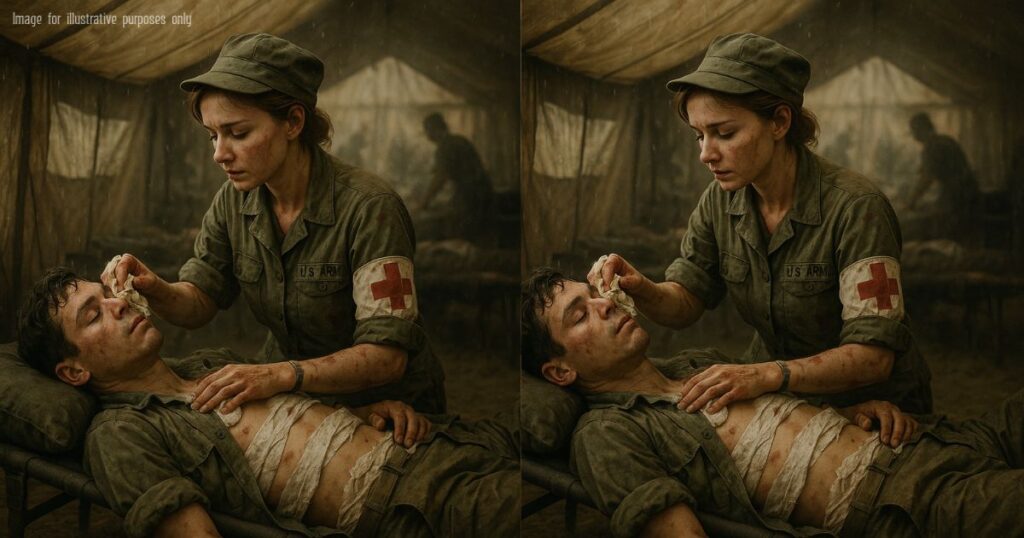By Carolyn West
“I cleaned the blood off soldiers in Vietnam—and now I can’t afford my insulin.”
That’s not a metaphor. That’s my life.
I don’t usually talk like this. But last night, I mixed up my pills again. Took the water tablets instead of the glucose meds. Spent the evening trembling under a wool blanket, not from fever, but from the shame of needing help and having no one left to call.
My name’s Carolyn West. Army Nurse Corps, Class of ’68. Served in Pleiku, then Da Nang. Later, I worked night shifts in Cook County Hospital, then St. Mary’s in Wichita. Forty-one years on my feet, mostly in rubber soles, doing what I was trained to do: care for the broken, the bleeding, and the dying.
And now, at 73, I live off a folding chair and canned soup. My pension just covers rent. My Social Security barely stretches to groceries. Insulin? That’s a luxury. I buy it half as often as I should and stretch it out with prayers and oatmeal.
I wasn’t always invisible.
In Vietnam, I held seventeen-year-olds as they bled out, whispering things I can still hear at 3 a.m. “Tell my mom I didn’t cry,” one said. He had freckles and a bullet through the lung.
In Chicago, I worked twelve-hour shifts in the ER—bussing trauma carts through gunshot nights. We didn’t have much, but we had each other. There was respect in those halls, even if it came in short bursts, like a nod from a tired surgeon or a smile from a young orderly who finally remembered to say “Ms. West.”
I never married again after Jack died. He was a Marine, died of lung cancer before sixty. Agent Orange. We never got a penny in compensation. They sent a folded flag and a thank-you letter typed so neatly it hurt more than it helped.
Now it’s just me and a dusty apartment in South Wichita. The air smells like old paper and linoleum glue. My fridge hums louder than my TV. Some days I stare out the window for hours and count how many dogs walk by with jackets on. Even dogs have better insurance these days.
I still keep my nurse’s badge in a little drawer. The clip is rusted, and the photo’s sun-faded, but the smile is real. That woman—she had purpose. She stood tall in white shoes and stitched people back together when the world fell apart.
Today, I stitched the hem of my sweatpants and hoped the power company wouldn’t shut me off this week.
Last Friday, I walked to the pharmacy, clutching a $20 bill and hoping the pharmacist on duty was the kind one. The younger ones always look at me like I’m asking for a handout, not medicine. I asked if they had the cheaper insulin. The tech looked up my record and said, “You’re overdue by two months, Ms. West. You can’t keep skipping like this.”
I nodded. “I know,” I whispered, and left without buying a thing.
And then today, something strange happened.
The mailman slid a few letters under my door. Junk, mostly. A bill. A coupon for hearing aids. Then one envelope caught my eye. No stamp. Just my name, in blue ink, shaky handwriting.
Inside: a folded letter on lined notebook paper. The kind kids still use.
Dear Ms. West,
We found your name in the local veterans registry. Our school is doing a Veterans Day assembly. Would you be willing to come and speak to our class?
We want to hear your story.
Your voice matters.Sincerely,
Mrs. Hartman’s 10th Grade Civics Class
East High School
I read it three times. My hands shook. I had to sit down.
They want to hear my story?
After all this time… someone remembers?
(Read Part 2 → Carolyn takes the stage—and finally gets heard.)


